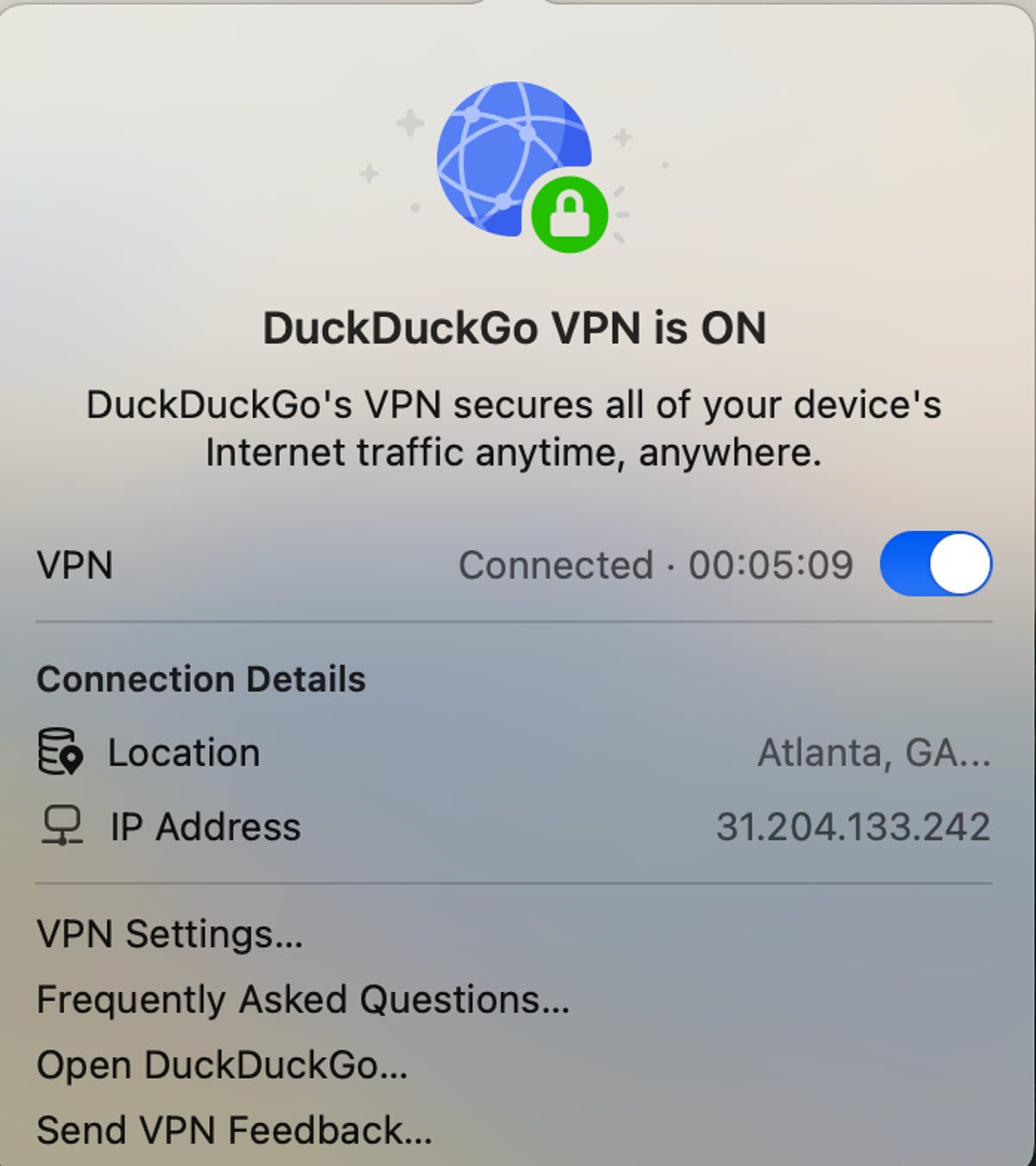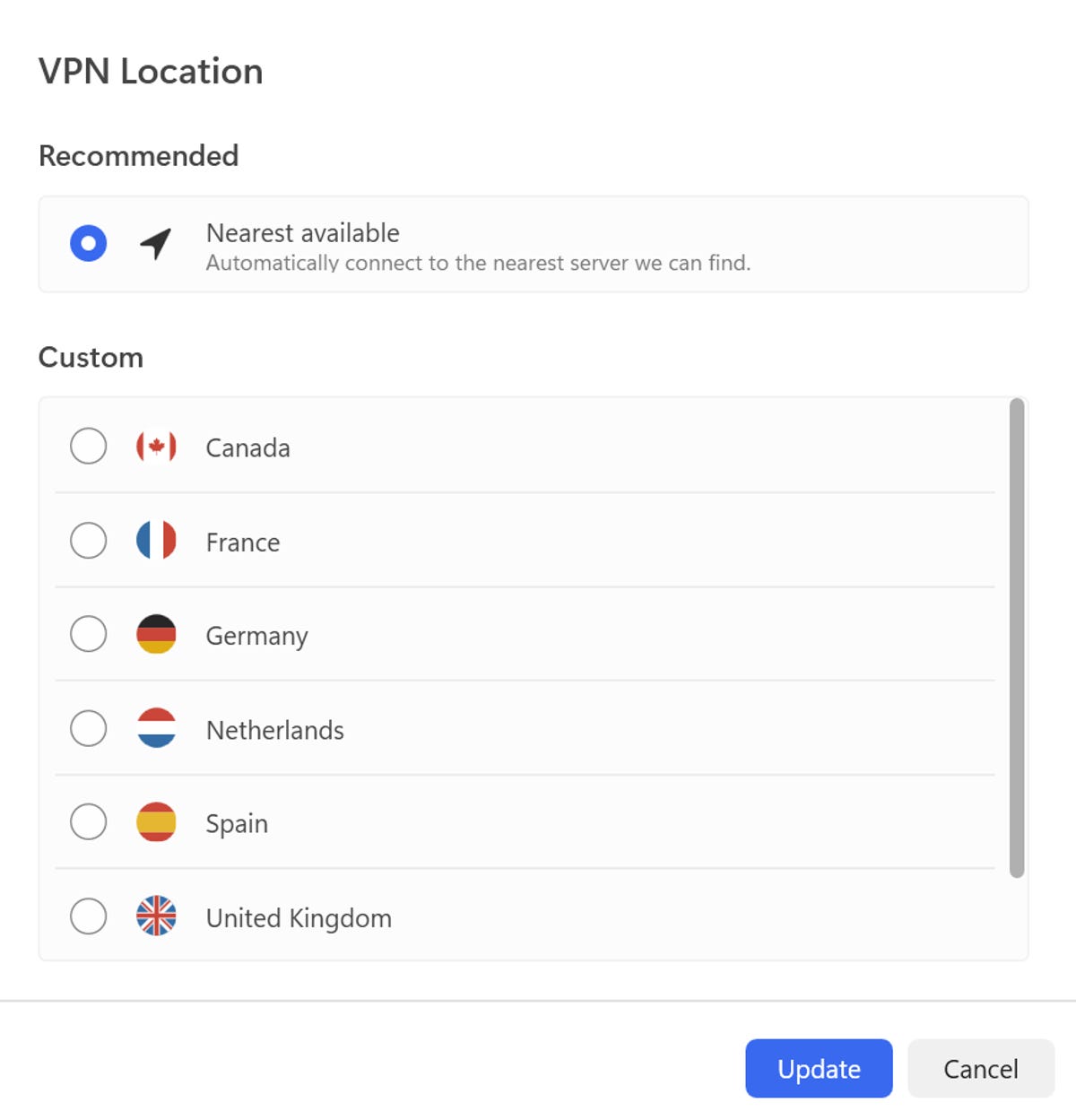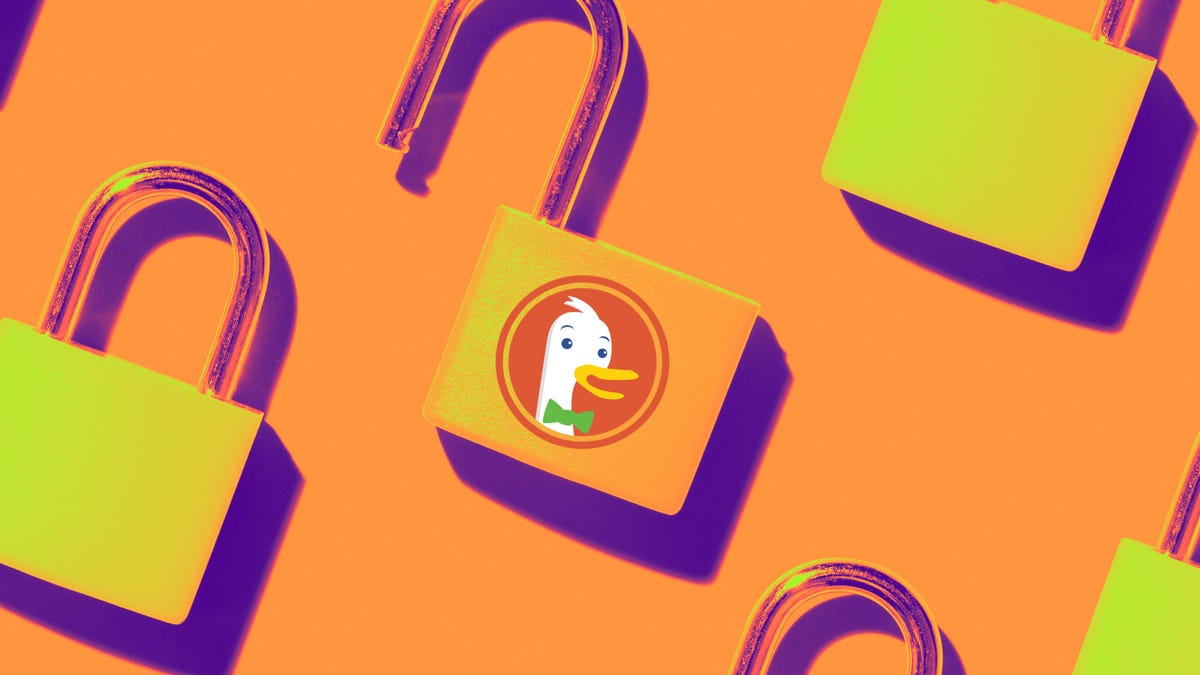DuckDuckGo is a privacy-focused search engine. Unlike rivals such as Google and Bing, DuckDuckGo eschews ad trackers, making it tougher for websites to gather browsing data. In addition to its search engine, the company offers a web browser and mobile apps. When DuckDuckGo announced its Privacy Pro suite — consisting of a VPN, information removal tool and identity theft restoration — I was excited to give its virtual private network a spin.
During my testing, I was impressed by DuckDuckGo’s VPN offering. Although it lacks the sheer volume of servers and bountiful features of our top VPN recommendations, like ExpressVPN or NordVPN, its intuitive design is great for beginners.
DuckDuckGo’s Privacy Pro VPN is user-friendly

DuckDuckGo’s Privacy Pro VPN is impressively simple without sacrificing basic functionality. Everything from signing up to using the VPN itself is a breeze. Here’s how to get started with DuckDuckGo’s VPN:
1. Head over to DuckDuckGo and click on the Privacy Pro link.
2. Select the $10 a month or $100 a year plan to sign up, or choose I Have a Subscription if you’re already enrolled.
3. Now that you’re signed up, download and install the DuckDuckGo browser or fire it up on your device if it’s already on your machine.
4. To log into your DuckDuckGo VPN, you’ll need to enter a one-time passphrase, which will be emailed to you.
Once you’ve signed into your Privacy Pro account, you’ll need to enable your VPN.
To turn on a VPN on Android or iOS/iPadOS:
1. Tap Open VPN in your DuckDuckGo app.
2. Then, you can toggle on your virtual private network.
Here’s how to add DuckDuckGo on Windows and MacOS:
1. Head to Settings > Privacy Pro > VPN.
2. Confirm the pop-up asking you to install the DuckDuckGo VPN. On Windows, tap Install. With MacOS, press. Add VPN Configuration and Allow in the pop-up window.
3. Click the VPN logo in the top right-hand corner of your DuckDuckGo browser.
Privacy Pro is great for general privacy and streaming
Compared to other VPNs, like ExpressVPN, NordVPN and Surfshark, DuckDuckGo is pretty spartan. You can choose from servers in seven different countries: Canada, France, Germany, the Netherlands, Spain, the UK and US. Split tunneling — which lets you use a VPN for some apps but not others — is available on Android, but not MacOS, Windows or iOS/iPadOS.
I regularly use split tunneling when I want to stream one of my favorite Canadian TV shows, Murdoch Mysteries, on the CBC website using a VPN while excluding my Steam client so I can download PC games without throttling my internet connection.
I didn’t experience any DNS leaks, and was thrilled to discover built-in kill switch functionality. A kill switch disables your internet connection in the event of an unexpected VPN interruption, ensuring that your actual IP address stays masked. In addition to enhancing privacy, DuckDuckGo’s VPN is decent for streaming. I was able to use the Privacy Pro VPN to watch Final Destination on Netflix using a French server — normally, it’s unavailable on Netflix in the US.

But you won’t find the vast array of settings that well-established VPN providers offer. For instance, you can’t select different VPN protocols like OpenVPN or IKEv2 — DuckDuckGo only uses WireGuard. VPN newcomers shouldn’t mind, but power users may be disappointed by the lack of customization. Likewise, DuckDuckGo’s server roster of seven countries currently falls well short of the 100-plus worldwide locations that CNET’s top VPNs include. Its relatively small server network means DuckDuckGo isn’t ideal for travel.
You won’t find specialty servers, such as Double VPN or Onion Over VPN options, which encrypt your connection twice for beefed-up privacy. Similarly, DuckDuckGo’s virtual private network doesn’t include obfuscated servers, which make it more difficult for ISPs or websites to determine that you’re using a VPN — helpful in situations like on school Wi-Fi where VPNs might not work properly with some apps. Folks with critical privacy needs, like investigative journalists or political asylum-seekers, should look elsewhere.
However, there’s beauty in its simplicity. People simply seeking extra privacy while browsing the web or the ability to unblock international Netflix libraries in a handful of countries will appreciate the no-frills design of DuckDuckGo’s VPN. And the service should only improve. A DuckDuckGo spokesperson told me via email that the company plans to bring split tunneling to other operating systems besides just Android and that there’s a third-party audit in progress to back up its no-log claims. Plus, DuckDuckGo intends to roll out more servers as its Privacy Pro service gains traction.
Unlike other browser plugins, the DuckDuckGo VPN works machine-wide
Whereas most VPN browser plugins only tunnel your web browser traffic through a virtual server, DuckDuckGo’s Privacy Pro VPN works across your entire device. Essentially, the DuckDuckGo browser doubles as a VPN client app. So with the DuckDuckGo VPN toggled on, I was able to stream Law & Order: Special Victims Unit (normally on Peacock and Hulu in the US) on Netflix via a UK server in the Windows Netflix app. By comparison, most Chrome VPN plugins like the NordVPN app only secure traffic in your browser, not apps downloaded on your device or other web browsers.
Privacy Pro is a nice way to support DuckDuckGo and easily bolster privacy on supported devices
Because of its limitations, I don’t think DuckDuckGo’s Privacy Pro VPN will become most folks’ — myself included — daily driver. It’s only supported on a handful of platforms, has a small server network and lacks many advanced features. Still, it’s a great choice for DuckDuckGo enthusiasts who want to financially support the privacy-centric search engine and keep it free from data collection. Developing a browser and search engine isn’t free, so this is a neat means of getting a solid service while contributing to DuckDuckGo development efforts.
Additionally, I can see this as a nifty all-in-one privacy suite — a VPN and tracking-free browser — while on a borrowed computer. You could simply download the DuckDuckGo browser, log into your VPN and enjoy system-wide privacy on a friend or family member’s PC, for example. That saves you from having to download a VPN app, install it and log in. Plus you get the added benefit of browsing without saved search history that way.
VPN beginners who just want more privacy will appreciate the streamlined interface. If you don’t care about the small pool of servers or limited features, this is a good choice. VPNs can be overwhelming if you’ve never used one, and this app lets you get started without needing a veritable glossary of terms to determine the correct settings to enable.
While I mostly stuck to the VPN portion, Privacy Pro includes a Personal Information Removal feature alongside Identity Theft Restoration. Personal Information Removal lets you remove information, such as your home address and phone number, from sources like people-finder websites. Data deletion services like this are useful, if imperfect, ways to get your information away from data brokers. Identity Theft Protection assists in the event of identity theft — a service I wish I had a few years ago when my credit card was charged over $800 at a barber shop (spoiler alert: It wasn’t me). If you’re in the market for these services, paying $10 a month or $100 annually is a great value. and on top of that, you get a VPN.
For more information about this privacy-focused search engine, learn why you should use DuckDuckGo instead of Google.
